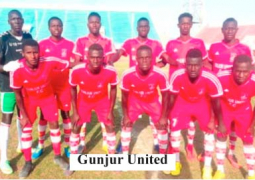
The Female Lawyers Association of the Gambia (FLAG) yesterday commenced a six-week training course for its members on Sharia Law.
Funded by the British High Commission in Banjul through their bilateral programs fund, the training course aimed, among others, to enable FLAG members to argue before the courts, and help women and children in need of legal representation.
Speaking at the formal commencement of the course held at the Paradise Suites Hotel, Neneh Cham, president of FLAG, said it is part of their mandate to organise legal training sessions and advocacy programs in order to highlight and educate its members, as well as the public about the laws affecting women and children.
According to her, since its inception in 2006, their members have been giving pro-bono legal advice, and general legal services to indigent women and children, whenever they are called upon.
However, FLAG cannot carry out its full mandate in its drive to improve the legal status of women and children without the financial support of their partners.
Talking about the topic of the course, she cited section seven of the Constitution, which make Sharia part of the laws of The Gambia.
“This training course means a great deal to FLAG,” she emphasized, saying they have limited members of the association who are learned in Sharia.
“We therefore see the need now more than ever before to increase our members training, and this is just the beginning,” she said.
She also indicated that knowledge of personal laws will be useful, when FLAG members conduct advocacy programmes on the issues affecting women and children.
She finally underscored the importance of the Judiciary’s embarking on a series of initiatives in reforming the Cadi court system.
The British High Commissioner to The Gambia, David Morley, expressed appreciation for being associated with the initiative, adding that it forms part of their support to development in The Gambia.
“It is very important that Gambian women know their rights, and I am delighted that the UK High Commission is involved with this worthy initiative. The British Government is committed to supporting democracy and human rights across The Gambia and throughout Africa. I congratulate FLAG for being successful in their funding bid and wish everyone involved in the training the best of luck”.
Morley went on to highlight the number of projects they are supporting this year, while congratulating the participants for their efforts.
Deputising for the Chief Justice was Justice Marie Saine Firdaus, who thanked FLAG for being strategic partners of the Judiciary.
“It is the complementary work of the Bar and the Judiciary that will help to advance justice delivery in The Gambia; therefore, this training is important and timely,” she said.
Justice Firdaus assured FLAG of the support of the Judiciary in ensuring that the cadi court system was enriched and enhanced when it comes to the administration of justice, while urging the participants to take their training seriously.
The chairman of the Cadi Appeals Panel, Omar Secka, underscored the importance of the training course. He indicated that Islam attaches great importance’s to adjudication.
Mr Secka said that the training session will contribute greatly to justice delivery in Cadi courts, while applauding the organizers for the initiative.
It would be recalled that the FLAG were recently successful in being awarded over 240,000 dalasi (£5,000) by the UK High Commission to conduct Sharia Law training for 10 FLAG members to enable them to offer legal representation to vulnerable women and children across The Gambia.
Currently only one out of the 58 FLAG members within the Gambia is sufficiently trained in Sharia Law, meaning many Gambian women and children go before the courts unrepresented.
As a result of the collaboration between FLAG and the British High Commission, FLAG members will be better equipped to give factual and sound advice to clients visiting the FLAG secretariat regarding the laws affecting the lives of Gambian women and children.


